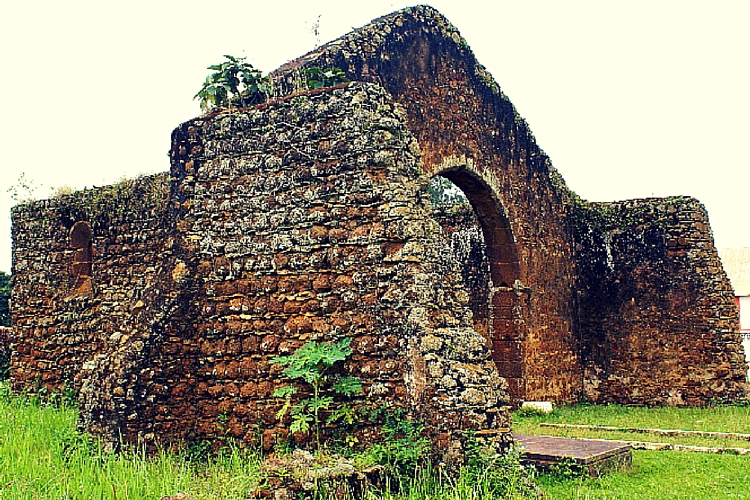The Portuguese were some of the earliest Europeans to establish trading posts along the coasts of East and Southern Africa. As they ventured into Africa they traveled with Catholic missionaries. Portuguese priests and Jesuits were known to accompany most early expeditions to Africa. The Franciscans made their first contact with Africans in 1402 when the explorers reached the Canary Islands.
The Treaty of Tordesillas signed on June 7, 1494, divided the newly discovered lands outside Europe between Portugal and the Crown of Castile, along a meridian 370 leagues west of the Cape Verde islands. The lands to the east would belong to Portugal and the lands to the west to Castile. In this treaty, the Pope recognized Portuguese claims to Africa. Thereafter, missionary activities in Africa were sanctioned by the Portuguese King. Early conquistadors would always set sail with at least one chaplain. In 1482, Portuguese explorer Diogo Cão came into contact with villages in the large ancient kingdom of the Kongo, an area that now covers parts of the Democratic Republic of the Congo (DRC), the Republic of Congo, and northern Angola. During that time the Kongo was ruled from Mbanza Kongo, a prosperous farming village near the mouth of the Congo River. Diogo Cão held hostage a small group of Africans and took them to Portugal were King João II (1481–1495) required that the Africans be taught Portuguese as well as Catholicism. Between 1484–1485, Diogo Cão returned to the Kongo area with the small group of Africans who were now fluent in Portuguese and understood Catholicism.
It is estimated that the first group of missionaries from the Canons of Saint John of Eloy set foot in the Kongo region in 1491. Thereafter, Mbanza Kongo was renamed São Salvador, after a famous church built by the Jesuits. King Nzinga a Nkuwu and his wife, Ne Mbanda, were baptized on June 4, 1491 and given the new names, João and Leonor while their elder son, Prince Nzinga Mvemba, became known as Afonso, after Prince Afonso of Portugal. After Afonso won the crown from his brother, he ordered all the chiefs to erect churches and crosses. King Afonso even sent his children to Portugal were some of his sons became ordained Priests. On May 5, 1518, King Afonso’s son, Henrique, was ordained bishop of Utica, in São Salvador, were he became the first African south of the Sahara to receive this title. Pope Leo X who ruled from 1513 to 1521 later appointed Henrique Vicar Apostolic of the Kongo within the archdiocese of São Salvador. However, most of the citizens in King Afonso’s kingdom continued to practice ancient African religions.
When the Jesuits came to the Kongo region, they offered education as their means to influence the local population. However, no long after their arrival, they were expelled after they introduced plans to build a college for the upper and middle class in the society. They were able to return and establish more missions in 1581, then in 1585, and again in 1587.
However, the Portuguese King was more interested in the economic benefits of the new found lands than in converting Africans. Portuguese explorers were looking for gold, precious metals, spices, and a way of establishing a permanent commercial trading base and the ability to control trade routes mainly controlled by Muslim traders at the time. Historians point to a definite link between the lack of new found fortune on the part of the explorers and the demise of missionary work in the Kongo region. One of the longest serving missionary groups in this area was the Capuchin Missio Antiqua, who remained active for almost two centuries, between 1645 and 1835.
This in part was due to the conversion of Nzinga, the daughter of King Aidi Kiluanji of the Ndongo,35 and future Queen of Matamba. Initially, Nzinga used the conversion to strengthen her political power and relations with Portuguese traders. However, with the help of Capuchin missionaries she spearheaded the building of several new churches and towns. Catholic missionaries who came to the Kongo region were primarily from Portugal, Italy and Belgium. Catholicism and Portugueseness were almost synonymous and almost equivalent to ‘civilization’.
To be “civilized” that is, assimilated to Portuguese norms — one had to be Catholic:
The concept of Portugueseness explains and justifies the special position accorded in all Portuguese dominions to the Roman Catholic Church and missions.…Naturally, therefore, to become Portuguese should also mean to become Roman Catholic. -Abshire 1969b: 79; cf. Neill 1966: 293





2 responses to “Portuguese Catholic Missionaries in Mbanza, Kongo -Africa”
But no mention of how “Papal Bull Dum Diversas”, which Black people to “perpetual slavery”, or the Papal Bull Romanus Pontifex, which “sanctified” taking Africans’ land, or how ‘St.Thomas Aquinas defends slavery as instituted by God in punishment for sin, and justified as being part of the ‘right of nations’ and natural law’. or how they snatched ‘twelve million Africans’ from Africa, forcing them into “perpetual slavery”, or how Pope Paul III and justify slavery and declare perpetual slavery (the perpetual enslavement of Africans) as “divine law”. . . . Um . . .
*which reduced Black people to perpetual slavery